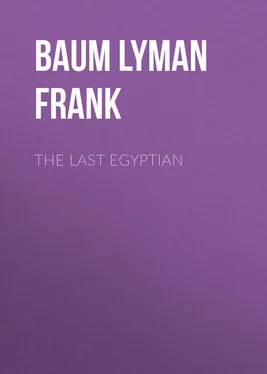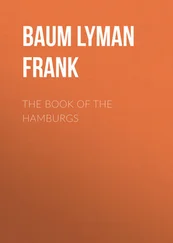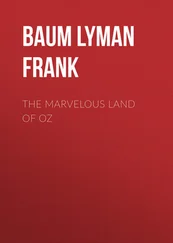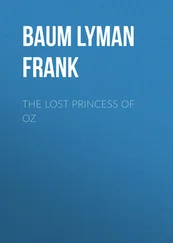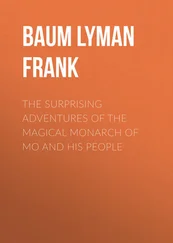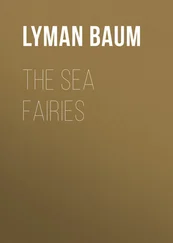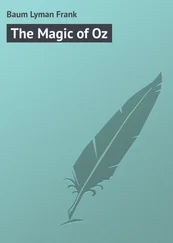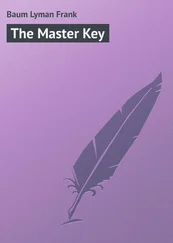Lyman Baum - The Last Egyptian
Здесь есть возможность читать онлайн «Lyman Baum - The Last Egyptian» — ознакомительный отрывок электронной книги совершенно бесплатно, а после прочтения отрывка купить полную версию. В некоторых случаях можно слушать аудио, скачать через торрент в формате fb2 и присутствует краткое содержание. Жанр: foreign_antique, foreign_prose, на английском языке. Описание произведения, (предисловие) а так же отзывы посетителей доступны на портале библиотеки ЛибКат.
- Название:The Last Egyptian
- Автор:
- Жанр:
- Год:неизвестен
- ISBN:нет данных
- Рейтинг книги:5 / 5. Голосов: 1
-
Избранное:Добавить в избранное
- Отзывы:
-
Ваша оценка:
- 100
- 1
- 2
- 3
- 4
- 5
The Last Egyptian: краткое содержание, описание и аннотация
Предлагаем к чтению аннотацию, описание, краткое содержание или предисловие (зависит от того, что написал сам автор книги «The Last Egyptian»). Если вы не нашли необходимую информацию о книге — напишите в комментариях, мы постараемся отыскать её.
The Last Egyptian — читать онлайн ознакомительный отрывок
Ниже представлен текст книги, разбитый по страницам. Система сохранения места последней прочитанной страницы, позволяет с удобством читать онлайн бесплатно книгу «The Last Egyptian», без необходимости каждый раз заново искать на чём Вы остановились. Поставьте закладку, и сможете в любой момент перейти на страницу, на которой закончили чтение.
Интервал:
Закладка:
He was now in the natural fissure of the mountain cavern, and it did not take him long to reach the stone wall which alone separated him from Hatatcha’s dwelling.
He paused a moment, with his ear to the wall; but hearing no sound, he extinguished his light and then caught the handle imbedded in the stone and swung the block upon its pivots. In a moment he was in the living-room, and the wall through which he had passed seemed solid and immovable.
He must have been absent for several hours during his exploring expedition into the mountain, and the night was now far advanced.
Kāra flung the papyri into a corner, covered them with loose rushes from his grandmother’s couch, and then threw himself upon his own bed to sleep. He had been awake the better part of two nights, and his eyelids were as heavy as if weighted with lead.
CHAPTER V
A ROLL OF PAPYRUS
At daybreak the dragoman thrust his head stealthily through the arch and looked at Kāra’s sleeping form with suspicion. He had visited the young man’s house in the evening and found him absent and Hatatcha’s body also gone. He came again later, and once more at midnight, and still Hatatcha’s dead form and her grandson’s quick one were alike missing.
Then the dragoman, wishing to know to what secret place the old woman’s remains had been taken, and from which direction Kāra returned, and having a fair share of oriental shrewdness, had stretched two threads across the narrow street – one on either side the arch – and afterward returned to his couch in the house of old Sĕra to sleep.
Daybreak found him awake and stirring. He discovered both his threads unbroken, yet the young Egyptian was sound asleep within the room. The dragoman scratched his left ear in perplexity and shook his head. Kāra was doubtless clever, but his unusual actions led Tadros to believe there was something important afoot. And that matter of the coins and the ancient jewel of old Hatatcha was well worth investigating.
He sat down cross-legged in the cool arch and waited. Kāra slept on. The girl Nephthys brought the dragoman a cake for his breakfast, silently placed it in his hand, and carried her jar to the river. On her return she paused to allow her master to drink and then left him again.
Tadros lighted a cigarette and smoked it to the end. Then he pushed aside the mat and looked into the room long and steadily. Kāra lay like one dead; in some strange manner the lazy one must have exhausted his strength – perhaps in carrying his grandmother’s corpse to some far-away tomb. Ah, that was the secret place, doubtless, from whence the coins and the jewel had come. Kāra must know of it, and therefore it would be well for Tadros to win his confidence. What was that heap of rushes in the corner, and why had they been taken from Hatatcha’s former couch? The dragoman was suddenly interested. He unfastened a portion of the mat and crept into the room. Kāra did not hear him. Softly he advanced on hands and knees to the corner. He felt among the rushes and drew out a roll of papyrus.
For a moment the dragoman sat still, his heart beating wildly. Here was a find, indeed! He knew of a dozen scholars who would willingly bankrupt themselves to discover a new papyrus roll.
He crawled slowly back to the arch and seated himself where a ray of light came between the mat and the gray stones. Here he unrolled the manuscript and examined it eagerly. He did not claim to be much of a student, but he could read hieroglyphics a little and was a judge of ancient picture-writing. Here was doubtless a scroll of great antiquity and value, relating incidents of the war of Rameses against the Kheta, and its state of preservation was wonderful. In this place was a list of captives brought back to Thebes; in that was the expense account of the army. Here was told the —
“Henf!”
The sharp, quick cry was followed by a sudden rustle of the rushes, and with a spring like that of a panther, Kāra was upon the impudent intruder into his domain. Before Tadros could rise, his assailant was kneeling upon his body and with lithe, delicate fingers clutching viciously at his throat. The dragoman struggled to free himself, but could not. He tried to breathe, without effect. The skin of his bronzed face grew black, and his eyes protruded from their sockets with a look of horror and fear.
Seeing this, Kāra’s set face suddenly relaxed and lost its look of murderous determination. He released his hold of the dragoman and pushed away the mat to allow more air to get to him.
Slowly the other, gasping and uttering low moans, recovered his breath. Kāra’s fingers had left great discoloured blotches upon his neck; but that did not matter. From certain death he was coming back to life, and the transition was one to evoke gratitude and joy. Life was sweet to the dragoman – the sweetest thing he possessed.
Kāra, standing erect, looked down upon him with arms folded in repose and a countenance very thoughtful. Two reasons had stayed his vengeful hands. To murder Tadros would get him into trouble with the authorities, and so cause him great annoyance at this critical juncture, when liberty of action and freedom from espionage was important. In the second place, his half-formed plans included the use of the dragoman for his own advantage. Tadros was both clever and well known. He would become a good servant when he knew it would further his personal interest to be faithful, and so it was best that the dragoman should live – for a time.
He had now almost recovered from the shock of Kāra’s assault, and began to grow angry.
“What do you mean, you dog, by felling me like a wild beast and trying to throttle me?” he demanded, with his first breath.
“What do you mean by stealing into my house and prying into my private affairs?” returned Kāra brusquely.
The dragoman’s eyes fell upon the papyrus at his feet, and his face changed its expression.
“Where did you get it?” he asked, quickly. “Are there more of them? Is it a tomb or a temple? Tell me, Kāra, tell me all about it.”
The Egyptian smiled, grimly.
“There are more of them,” he said. “Look! in that corner are fourteen other rolls; but whether they came from a tomb or a temple I do not know. They are my inheritance from Hatatcha. Where she found them she alone could have told; but she carried the secret to the nether world.”
Tadros mused for a time.
“Where have they been kept all these years?” he asked in a tone of disbelief.
“Hidden underneath the rushes of her bed. I dragged them all out last night, as you can see.”
“Were there any more of the coins?”
“A few.” He showed some in his hand.
“Ah!”
The dragoman drew a deep breath.
“You are rich, my prince,” said he. “Fifteen papyri of the ancient days! – they are worth a fortune in any event.”
“How much?” asked Kāra, amused.
“This one,” said Tadros, picking it up and partly unrolling it to glance again at the writing, “I could sell in Cairo for five hundred piastres – perhaps a thousand. It is wonderfully clear and well preserved.”
“You may keep it for yourself,” said Kāra.
Tadros stared.
“I will exchange it for the girl Nephthys,” continued the young man, coolly. “For her you have paid to old Sĕra two hundred and fifty piastres already. You must pay a like sum to take the girl away with you, and afterward you must pay for her support. Very well; I will relieve you of the burden. You will not only save your money, but you will get a papyrus worth four times what you have invested.”
Tadros frowned and looked glum.
“But the girl is mine!” he exclaimed.
“And the papyrus is mine,” returned Kāra. “Perhaps I could buy two or three like Nephthys with it; but never mind, it shall be yours in the way of exchange.”
Читать дальшеИнтервал:
Закладка:
Похожие книги на «The Last Egyptian»
Представляем Вашему вниманию похожие книги на «The Last Egyptian» списком для выбора. Мы отобрали схожую по названию и смыслу литературу в надежде предоставить читателям больше вариантов отыскать новые, интересные, ещё непрочитанные произведения.
Обсуждение, отзывы о книге «The Last Egyptian» и просто собственные мнения читателей. Оставьте ваши комментарии, напишите, что Вы думаете о произведении, его смысле или главных героях. Укажите что конкретно понравилось, а что нет, и почему Вы так считаете.
